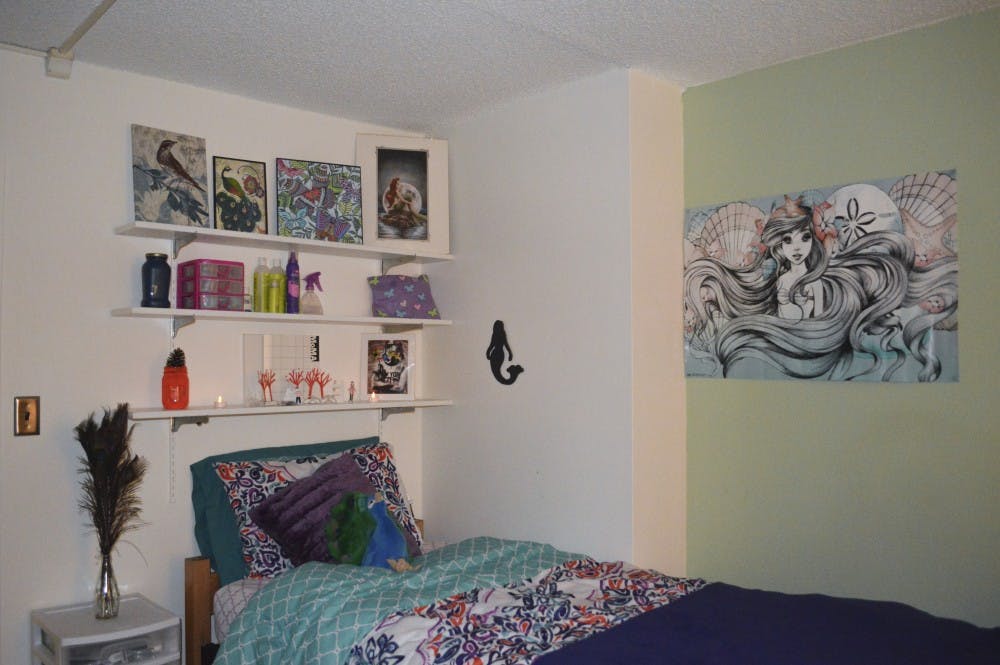I used to think that living off campus was a necessity.
During October of my freshman year, many of my classmates organized groups of friends they barely knew, and scrambled to sign leases for apartment complexes and houses near Penn. Back then, off-campus housing seemed like the cooler choice.
First semester of my freshmen year, I had a single in the Quad. I didn’t know anyone well enough to decide if I wanted to live with them. At that point, I was still getting lost on the way to my classes. I certainly didn’t know enough to make an educated decision on where I wanted to live. Often, living off-campus requires conducting research and committing to a house or apartment pretty early on. On-campus housing, on the other hand, gives you the opportunity to take your time picking your roommate(s).
Recently, Penn President Amy Gutmann announced that sophomores will be required to live in college housing starting in 2021. But off-campus housing remains an option for second-year students in the Classes of 2022 and 2023. Is it really worth the hassle, though?
Luxury apartment complexes with steep prices remain popular among Penn students. A four-bedroom apartment in the Radian with a 12-month lease costs between $1,650 to $1,700 per person each month. A two-bedroom unit at Domus costs around $1,700 per person.
These prices are significantly more expensive than some on-campus options for upperclassmen that cost as little as $10,200 per school year. Plus, you don’t have to worry about struggling to finding subletters for the summer.
Sure, places like the Radian and Domus might have gyms and fancy lobbies, but you can go to Pottruck for free and decorate your high-rise apartment to your liking. In other words, don’t let social pressure bring you to pay ridiculous prices for moderately nicer housing.
In certain situations, living off campus might save money. So the inconvenience of the housing search might be justified by cheaper prices. But it’s important to take into account the benefits of on-campus housing. All college housing comes furnished, includes 24-hour security, and access to laundry rooms. These are benefits that will likely warrant extra spending, depending on where you choose to live off campus.
SEE MORE FROM ISABELLA SIMONETTI:
Stanford is withholding its admissions rate. The Ivy League shouldn’t do the same.
For students with significant financial aid packages, moving off campus presents additional hurdles. By choosing to live in an off-campus apartment versus a dorm, students stand to lose at least $1,000 in potential aid.
For some, it’s healthy to gain distance from Penn. Still, on-campus housing can be convenient. All of my classes, the library, and popular meeting spots on campus are close to the high rises, where I live this year. And I haven’t found any mold growing on my walls, yet. In fact, I’ve found that the high rises are fairly well maintained.
I don’t agree with Penn’s decision to force sophomores to live on campus, particularly as a means to improve student wellness. On-campus housing may be favorable, but it hasn’t improved my mental health.
Ultimately, where you live is a personal decision. You have to make the choice that best suits your individual needs. But off-campus housing does not live up to the hype. So, freshmen, while you still have the opportunity to decide where you live next year, seriously consider living on campus.

ISABELLA SIMONETTI is a College sophomore from New York studying English. Her email address is simonetti@thedp.com.
SEE MORE FROM ISABELLA SIMONETTI:
Stanford is withholding its admissions rate. The Ivy League shouldn’t do the same.









